Loud Nation - Afrobeats and Weed
Afrobeats and Marijuana - A Cultural and Musical Connection
"Nigerian by birth, Canadian by loud," yells a hypeman on the microphone as the DJ switches to 'Canada', the hit single by rapper Magnito.
The crowd of up to 3,000 in the global capital of Afrobeats, Lagos, roars the punchline, understanding the coded reference. It is marijuana and not the country that is the preferred destination for Nigeria's middle class frustrated with the ruling dregs.
'Canadian by loud' refers to Canadian Loud, "described by Nigerian police as an expensive synthetic strain of cannabis from Canada with high THC content."
Despite its illegal status, cannabis culture is woven into the fabric of Nigerian music and social gatherings. At any Afrobeats concert, the air is thick with the pungent aroma of various cannabis strains.
Songs like Ayo Maff's 'Dealer' featuring Fireboy DML and TI Blaze's 'Sometimes (Refix)' featuring Olamide reflect this shift. Ayo Maff candidly mentions calling his dealer first thing in the morning, while TI Blaze contrasts the joy of food with the bliss of marijuana, highlighting how deeply this culture has infiltrated music and daily life.
The aloofness with which the new generation of artists sing about their love for marijuana indicates how weed culture has permeated not only music but also mainstream Nigeria.
Weed, or "Igbo," is arguably Nigeria's national scent, Eau de Indica. You can buy weed paraphernalia at shopping malls, supermarkets and barber shops.
Business Day reported in 2019 that around 20.8 million Nigerians consume cannabis annually, creating a market worth $15.3 billion. Despite the legal restrictions, with 19.4% of the population over 15 having used cannabis in the past year and 12% using it monthly, demand remains high.
The National Drug Law Enforcement Agency (NDLEA) frequently announces drug busts, but the supply persists.
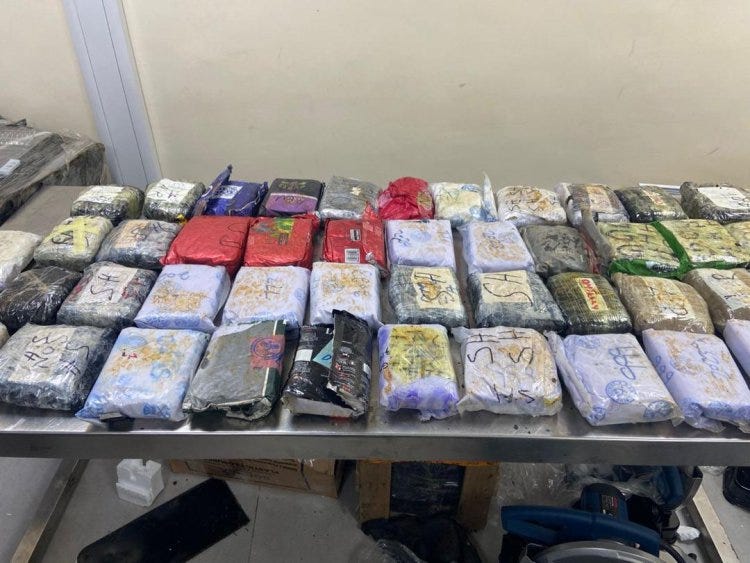
Mainstream artists like Burna Boy embrace weed culture, as seen with his weed strain 'BRKFST' and lyrics in songs like 'Last Last' and 'City Boy'.
Tearing a page from Hip-Hop capitalism, Burna Boy plugged his weed strain in his foot-stomping hit single 'City Boy,' where he proudly says he doesn't smoke 'Colorado' (a popular strain in Nigeria) but indulges in 'BRKFST.'
The song humorously found its way to the official Instagram account of President Bola Ahmed Tinubu. The humour did not escape many people in the comment section.
The normalization of marijuana in music isn't entirely new. In 2003, Professor Linkin's 'Jogodo' and Danfo Drivers' 'Sensimilla' celebrated cannabis despite limited airplay. 9ice's 'Ganja Man' in 2004 and Jahbless’ herb endorsements further cemented marijuana in the music scene.
I recall attending Felabration in October 2009. During a break, Terry G's 'Free Madness' blasted through the speakers, and the crowd responded with rolling clouds of sativa smoke, leaving my clothes reeking of weed.
Another pivotal moment was Jesse Jagz's transformation into a Rastafarian with his single 'Redemption,' filled with references to Rastafarian culture and imagery of cannabis.
link inThe music video featured close-up shots of trails of milky smoke slithering not only from the lips of Jesse Jagz but also from the video vixens. There was even a shot of a vixen rolling up a j. Women these days are open about their marijuana affection. Showing off cannabis culture is no longer just a male affair.
Cannabis culture has undeniably become mainstream in Nigeria, influencing music and societal norms. As the lyrics and lifestyles of prominent artists show, weed is more than a drug; it's a cultural touchstone, despite its illegal status.
SONGS OF OLD
PDA for weed in Nigerian music is not limited to contemporary pop music. The rebellious iconoclast Fela Anikulapo-Kuti was a cannabis connoisseur. His 1975 song, 'Expensive Sh*t,' refers to an incident when the Nigerian police planted a joint on him to arrest him on drug charges. Fela, always one step ahead, swallowed the joint.
He was detained in the infamous Alagbon Police Station, where his stool sample was tested for THC. The result turned out to be negative.
Another artist, the gravel-voiced Highlife great, Orlando Owoh (of Kangaroo fame), was a marijuana aficionado. His love for the herb was so renowned that his nickname was Dr Ganja.
In 1980, he released the album Ganja Vol. 1, where he praised marijuana. The album cover is effortlessly cool as Orlando Owoh sucks on his blunt while shoeless. Ganja Part 2 came out the following year with a caricature drawing of him with sticks of weed tucked in between his fingers.
Weed was also an essential item for many of the psychedelic rock and funk eras of the 70s.
HISTORY OF WEED IN NIGERIA
Little is known about cannabis use in West Africa before the 20th century. According to "Histories of Cannabis Use and Control in Nigeria, 1927–1967" by Gernot Klantschnig, cannabis cultivation and use in the region did not significantly increase until after World War II.
This rise is attributed to returning West African soldiers who had served in India and Burma, where they developed the habit of smoking cannabis.
In the 1950s, Nigerian police reports indicated that hemp users were primarily from the labouring class, particularly "seamen and others connected with ports" as well as "ex-servicemen and touts showing foreign seamen around."
Cannabis was initially imported from India and shipped to the United Kingdom, but a significant portion was consumed locally in West African port cities like Lagos. Until the late 1950s, cannabis use was considered a fringe habit among a small group of urban labourers who used it to aid physical labour and for recreational purposes.
The Nigerian Police Force established the Anti-Narcotics Squad in 1953.
By the early 1960s, police reports on cannabis use and cultivation in Nigeria had increased significantly. Newspapers quickly labelled the situation as a "hemp boom" in Lagos.
In 1961, police seized 823 kilograms of cannabis nationwide; this figure jumped to 7.2 tons in 1962 when 28 cannabis farms were identified. The annual seizure figures continued to rise until 1966 when the Indian Hemp Decree was introduced.
In the following years, cannabis use and cultivation became more widespread due to various economic, political, and social factors.
Despite the military regime's harsh laws, the state was unable to effectively change Nigerians' attitudes and behaviours toward cannabis. To better align government policy with the realities of cannabis use and popular attitudes, the decree was amended in 1975 to reduce penalties, particularly for cannabis use.
Economic and political crises led to another military intervention, which revived the Hemp Decree's approach to social issues. By the mid-1980s, heroin and cocaine had become the drugs of concern, but the strategies remained unchanged.
Although General Buhari's military regime lasted less than two years, its discipline-oriented social reform approach endured, culminating in the creation of the National Drug Law Enforcement Agency (NDLEA) in 1989.
The military-style approach to drug control in Nigeria closely aligned with U.S. strategies during the 1980s drug war, making Nigeria a key ally for U.S. drug agencies.
In early 1997, Nigerian musician Fela Anikulapo-Kuti spent two weeks in the custody of the NDLEA for marijuana possession and use.
MARIJUANA ECONOMY
In Oke-Ira, Ogba, a lower-middle-class suburb in mainland Lagos, there are several open spots where marijuana and other drugs that have infiltrated Nigerian streets are sold.
Similar to scenes in the HBO classic TV series 'The Wire,' a poignant tale of how drugs ravaged inner-city Baltimore, people willing to buy weed can pull up to these open spaces and purchase them.
These customers pull up in okadas, cars or straight walk to these spots and do business. The foot traffic and demand for drugs in these places have boosted the business of nearby operators.
There are many spots like this across the city.
In the city’s capital, Ikeja, outside the premises of the New Afrika Shrine, dealers peddle their strains of marijuana.
And if you don't want to purchase any indica, sativa, or ruderalis in public, there are dispatch services that can deliver to your doorstep straight from your plug.
In a 2019 episode of 'I Said What I Said,' hosts FK Abudu and Jollz interviewed an anonymous drug dealer who gave an insight into the economics of the weed business in Nigeria.
According to him, a street seller could make a 100k profit monthly, while a small-time distributor can rake between 2-3m within the same period. As for the person on top of the pyramid, we are looking at 10-12 million per batch.
He went on to say that the weed business is structured by a cartel, though he was vague on the specific details concerning the organization.
LEGALIZATION OF WEED
Cannabis is big business in Nigeria, but will it get legalized or decriminalized? Former President Olusegun Obasanjo supports the decriminalization of weed in the country.
"It is essentially a call for what we call decriminalization. If a young man tries to experiment with a wrap of marijuana, for instance, & because of that, we put him in jail," he told the BBC in 2018.
In 2021, the late Governor of Ondo state, Rotimi Akeredolu, reiterated his call for marijuana to be legalized for economic reasons.
"We must find a way to legalize the cultivation of cannabis for medicinal purposes. There is nothing wrong about it. We are only shooting ourselves in the foot. It is a foreign exchange earner for people outside the country. People want this. We, even our pharmacies, want to develop."
In 2023, Ondo state's IGR rose from N10bn in 2017 to N40bn ($26m) according to the Ondo State Internal Revenue Service.
Ondo, one of the states known for significant marijuana production, could increase its IGR with the export of medical marijuana. The other states which could benefit too are Ekiti, Osun, Delta and Ogun.
The NDLEA is firmly against the decriminalization and legalization of marijuana.
In 2021, the Chairman/Chief Executive of the National Drug Law Enforcement Agency, NDLEA, Brig. Gen. Mohamed Buba Marwa (Retd) argued that weed cannot be legal in Nigeria.
"Given the reality of our law enforcement, controlled cultivation of cannabis is a mirage. Aren't pharmaceutical opioids controlled? Tramadol, codeine, Rohypnol, and benzo pam, are all controlled, yet, their trafficking and abuse are causing us unquantifiable human and economic loss.
"And for those who point at the inherent economic benefit that could accrue from the legalization of cultivation, by our reality, would you be comfortable, if by tomorrow, your 13-year-old son can easily access marijuana, or you find some wraps of weed in his pocket, or you learnt that someone has introduced your 16-year-old daughter to smoking Igbo under the pretext that it has medicinal value?"
In 2023, the NDLEA applauded the House of Assembly for shutting down a bill that sought to decriminalize cannabis cultivation, sale and use.
Later in the year, Nigerian rapper Naira Marley visited the NDLEA and recorded a video on drug abuse. The public perceived the video as odd and wondered if the Marlian boss was an NDLEA ambassador.
The government agency later denounced any official affiliation with Naira Marley.
The House of Reps and NDLEA have also considered mandatory drug tests for secondary school students and undergrads respectively.
NOT ALL SMOKE AND MIRRORS
I don't smoke igbo [weed]. I used to, but I started having anxiety about smoking weed. I started getting scared of the future.
"So, four years ago, I stopped smoking weed. I just take cigarettes and liquor," revealed Street-Hop act, Bella Shmurda early this year on the 'In My Opinion' podcast.
Not all of Afrobeats is under the haze of sativa. Even Jesse Jagz, in 2014, said he was not promoting marijuana.
Afrobeats like Hip-Hop reflect the dark part of society, the corners and alleys that high society does not want you to see.
"There is nowhere in the world that young people have serious emotional pains like Nigeria. You can see it all over the whole place," said Keji Hamilton, a pastor who oversees the House of Joy Rehabilitation Center in Lawanson, Surulere, Lagos, in an interview I had with him in 2018.
"The pain is very high that is why they are going into drugs," he further explained.
Hamilton was a former drug addict who was part of Fela Anikulapo-Kuti's legendary band, Egypt 80. Today, he uses a faith-based approach to get boys and young men off drugs.
He and other men of God like Pastor Tony Rapu are helping to deal with the drug pandemic in Nigeria. It goes beyond weed. Crystal meth, molly, crack, cocaine, heroin, codeine and inhalants are part of the drug cocktail of youth culture.
This year, the First Lady, Senator Remi Tinubu, urged the states to fight against drug abuse.
In one of the many drug spots in Oke-Ira, things came to a head recently. The dealers at a junction close to two estates became a public nuisance according to residents.
These dealers (who residents claim are from neighbouring Chad) disturbed the peace of the neighbourhood with their constant fights which at times could turn violent.
The NPF has raided this spot severally, but the dealers come out from jail 24-48 hours later and continue their business.
A month ago, the ‘egbon adugbos’ took matters into their hands in conjunction with the Baale, the Lagos Neighbourhood Safety Corps and members of the NPF.
After the purge, the egbon adugbos now sit under a tent at the former drug spot and keep vigil to ensure they do not return.
QUO VADIS?
The concert is now at that point where time is blurry, and every song feels like the next high.
The next track from the DJ's Serato is another strain of a marijuana-influenced hit song. Zerry DL's street-economics rap hit is laced with a crowd-friendly weed hook that celebrates the communal joy of puffing and passing blunts.
Many have their imaginary blunts in the air as they dance, while others have the real thing. Quite a lot of them.
They smoke until the last minutes of the show. The last song is a befitting tribute to the ‘loud nation’ - Marlon Asher's 'Ganja Farmer' which the attendees blissfully sing.
For enquiries, ads and placements, you can mail me at contact@ayomidetayo.com





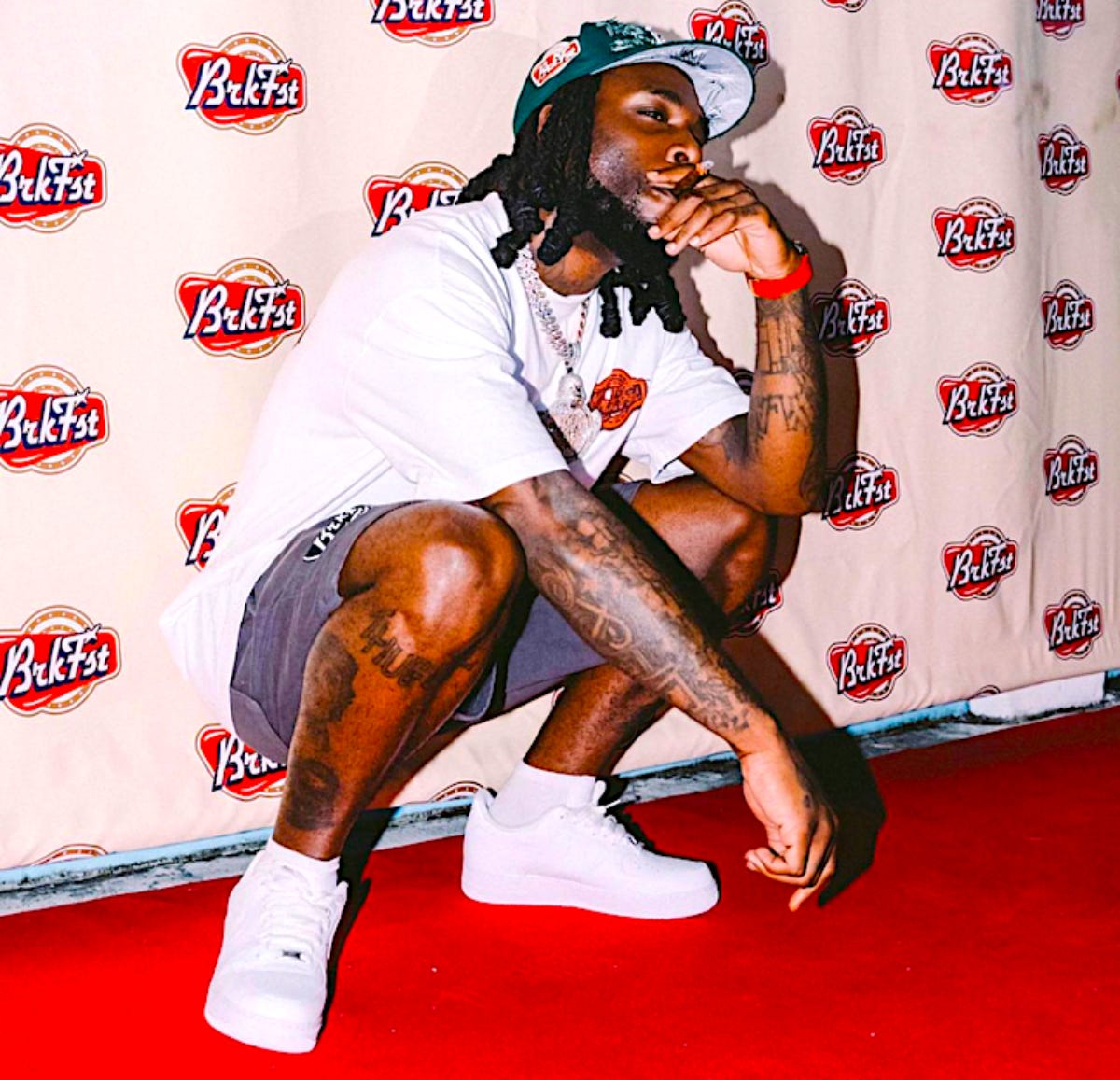
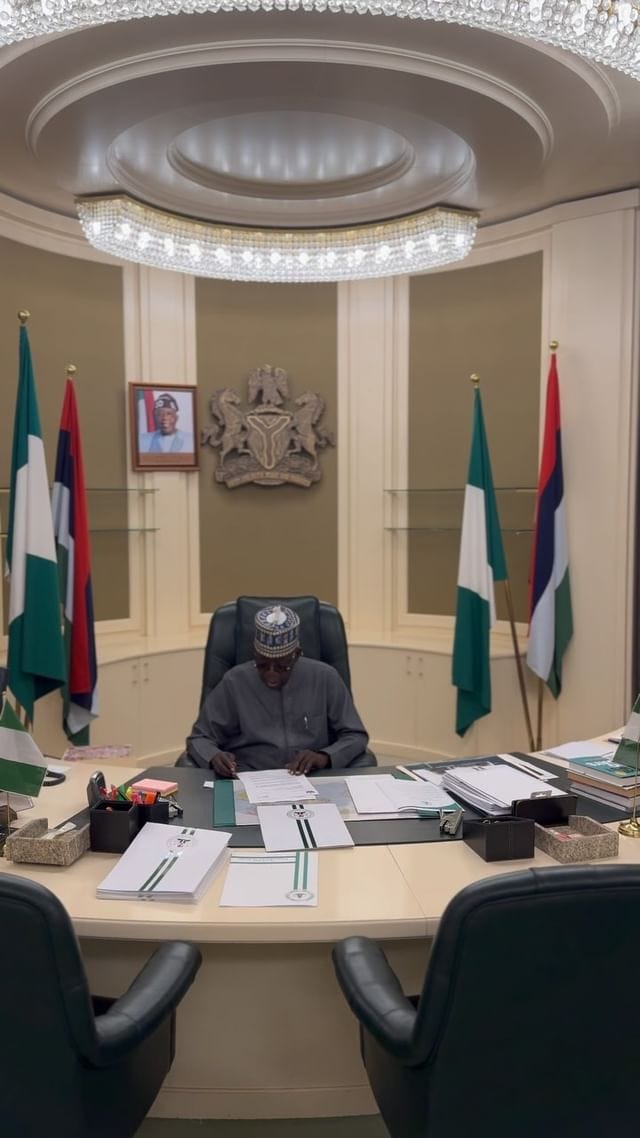

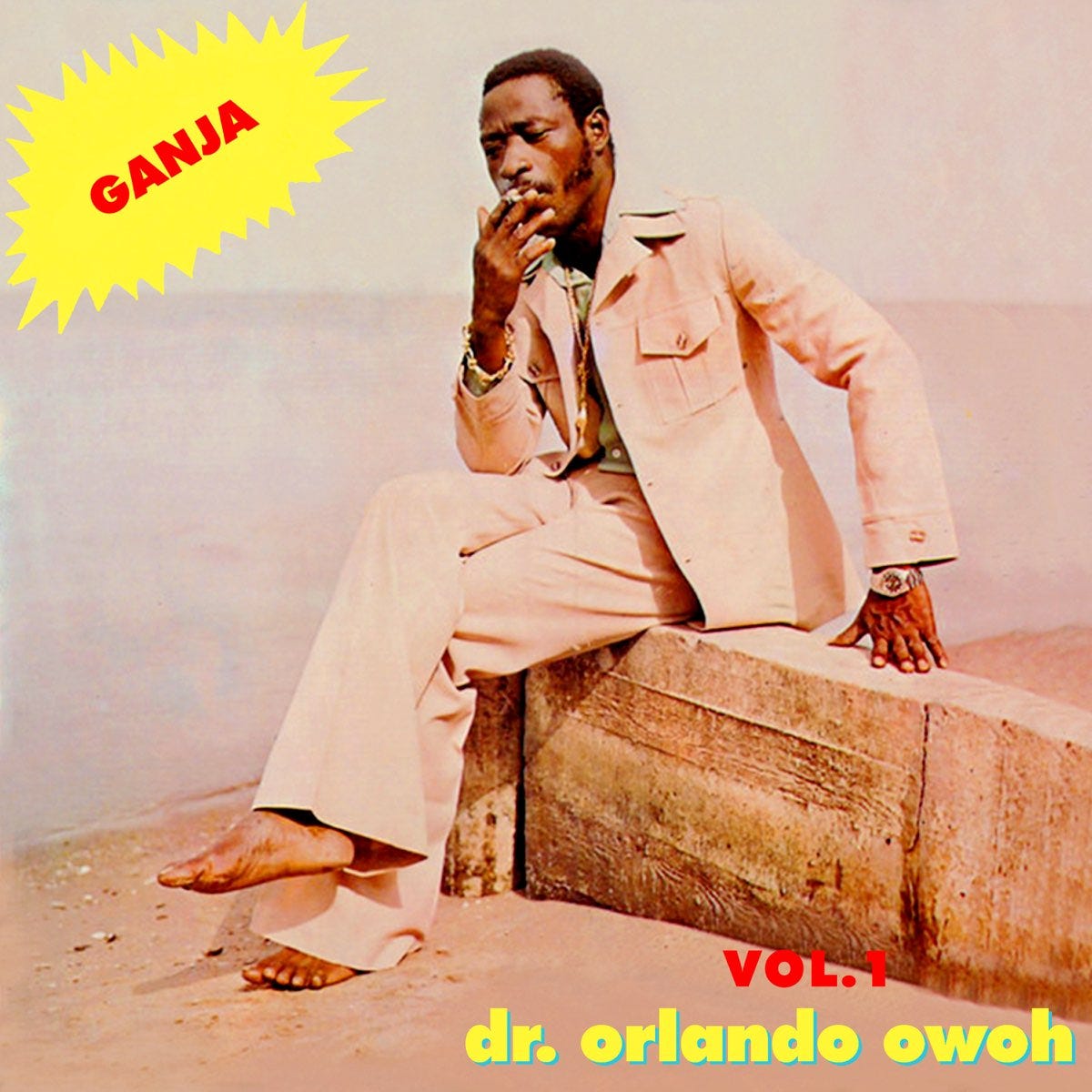
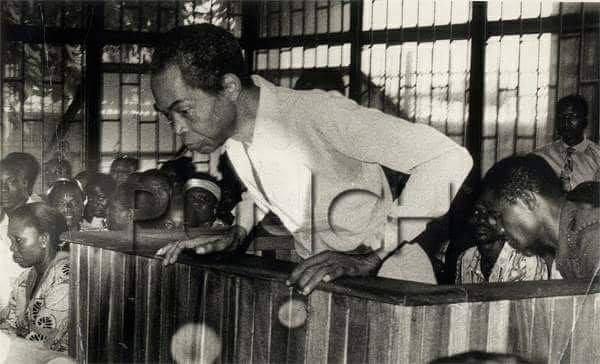
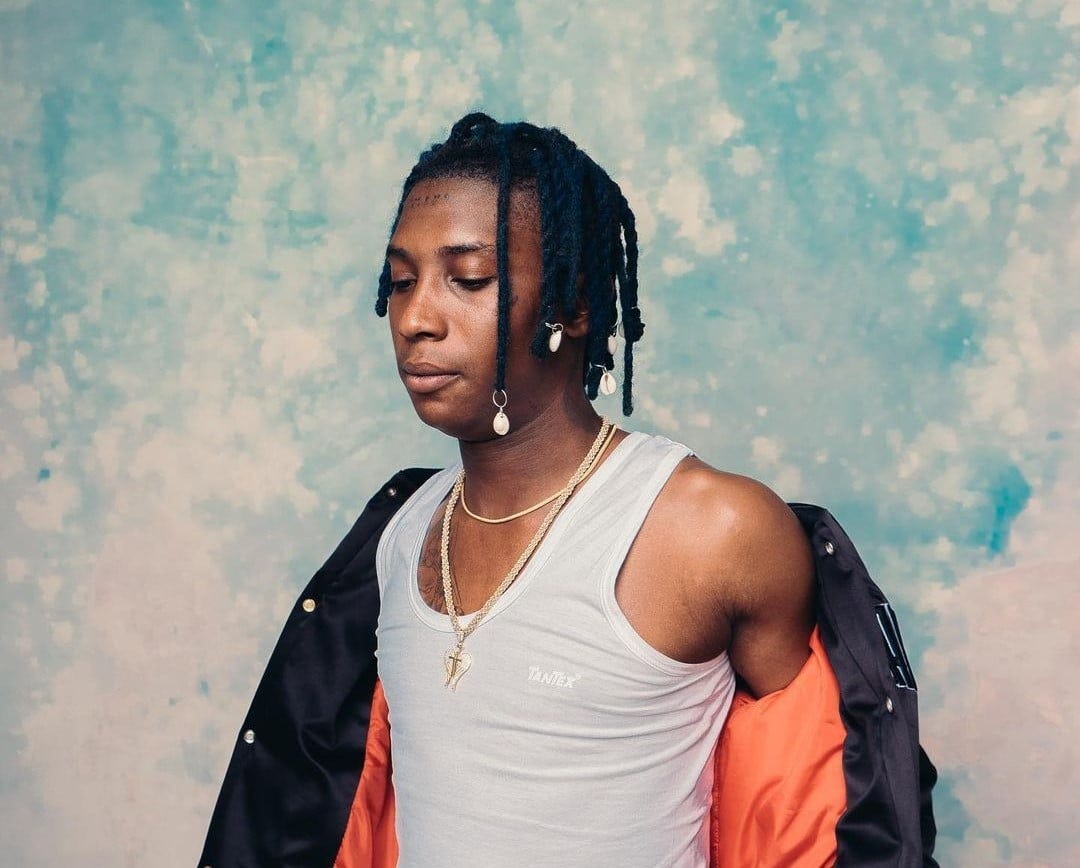

Funny how, if Marijuana becomes legalized trust me “ Nigerians go LOUD am “ 😂😂